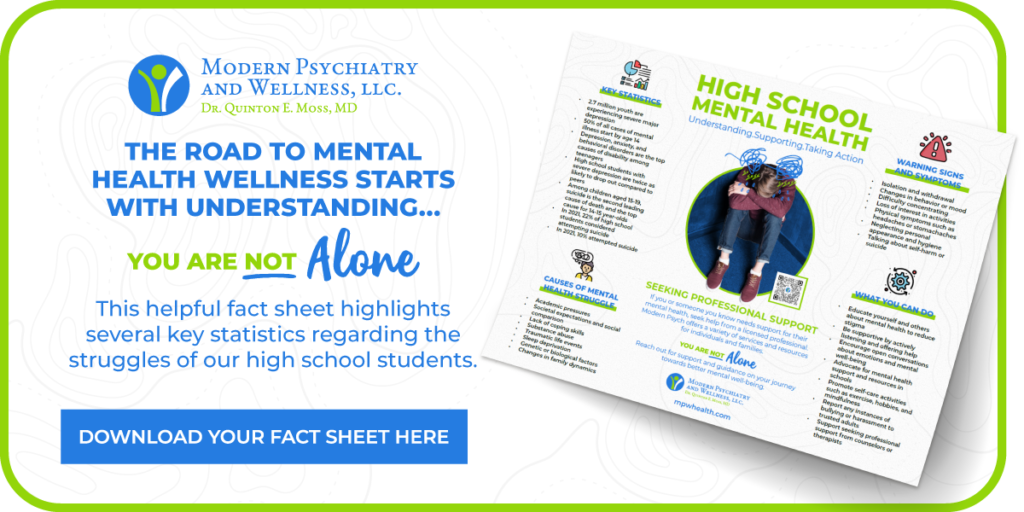The winter season brings cold weather, shorter days, and a shift in our daily routines. It can be harder to stay active and motivated, leading to decreased energy levels. Lack of sunlight can affect our mental health, potentially causing symptoms of Seasonal Affective Disorder. Changes in routines and social interactions can also contribute to feelings of isolation and stress. That’s why it’s important to prioritize self-care and take steps to maintain our mental and physical well-being. Self-care is about recognizing our needs and actively taking measures to meet them, and winter is a perfect time to focus on self-care tips that can support us through the colder months.
Keep Your Brain Healthy and Focused
>>>Download Our Helpful Infographic!<<<
Importance of Self-Care During the Winter
As the temperature drops and the days become shorter, it’s common to experience changes in your mood, energy levels, and overall well-being. The winter season can bring feelings of lethargy, seasonal affective disorder (SAD), and increased stress. However, by incorporating self-care into our routines, we can combat these challenges and even flourish during the wintertime.
Self-care during the winter isn’t just about pampering ourselves (though that can be a part of it!). It’s about implementing practices that nourish our bodies and minds, allowing us to thrive even in the face of cold weather and limited daylight. By making conscious choices to prioritize self-care, we can enhance our resilience, boost our immune system, and cultivate a sense of well-being.
Here are 10 Self-Care Tips
1. Practice Mindfulness
Mindfulness practices are a great way to take care of your mental health during the winter season. Practicing mindfulness can help reduce stress, boost your mood, and help you feel more grounded. Try incorporating 10 to 15 minutes of mindfulness meditation into your daily routine. However, if you’re not comfortable with meditation, there are other “mindful” activities you can try. Deep breathing exercises, gratitude journaling, mindful walking, and body scanning are alternative ways to incorporate mindfulness into your daily routine.
2. Get Enough Sleep
Getting enough sleep is crucial for maintaining good health. During the colder months, our bodies are naturally drawn to sleep more. Take advantage of this and aim to get at least 7 to 8 hours of sleep per night. If you have trouble sleeping, try some relaxing activities before bed such as reading or taking a warm bath.
3. Stay Hydrated
Drinking enough water is essential for keeping your body healthy. During the winter, we tend to drink less water because we aren’t as thirsty. Make sure you drink plenty of water throughout the day. If you don’t enjoy the taste of plain water, try adding flavor with fruit or herbal tea.
4. Exercise Regularly
Staying active is important for both your physical and mental health. During the colder months, it can be hard to find the motivation to exercise, but even a short 20-minute workout can boost your mood and energy levels.
5. Practice Good Skincare
A cold snap can be tough on our skin. Make sure you’re using a moisturizer that works for your skin type, and don’t forget to apply a lip balm to avoid chapped lips.

6. Get Outside
Getting outside during the winter season can have numerous benefits for our mental health. Exposure to natural light and fresh air can improve mood and energy levels. Even a short walk or spending time in the snow can provide a refreshing change of scenery and help us connect with nature. Outdoor activities like skiing or ice skating also offer enjoyable ways to get outside.
7. Incorporate Comforting Foods
Incorporating comforting foods into your diet can help you feel cozy and warm during the colder months. Aim to include nourishing foods such as soups, stews, and healthy carbs.
8. Limit Social Media Use
During the winter season, it can be especially beneficial to limit social media use. The winter months can already bring feelings of isolation and low mood, and excessive time spent on social media may exacerbate these emotions. Seeing others posting about their seemingly perfect winter activities and holiday festivities can lead to comparison, anxiety, and stress. Instead, try to prioritize activities that you enjoy during this season. Engage in winter hobbies like reading by the fireplace, baking, or spending quality time with loved ones.
9. Connect with Loved Ones
Connecting with loved ones can help you feel less isolated during the colder months. Schedule regular calls or video chats with friends and family, and if possible, schedule an outdoor activity like a hike or walk.
10. Prioritize Relaxation Time
Incorporating relaxation time into your day is essential for reducing stress and enhancing well-being. Whether it’s taking a relaxing bath, reading a book, or listening to calming music, finding activities that help you unwind is crucial. By dedicating time to relaxation, you can effectively manage stress and improve your overall sense of well-being.
Embrace Winter and Prioritize Self-Care
Prioritizing self-care during the winter season can greatly benefit our mental and physical well-being. By incorporating self-care into our daily routines, we can reduce stress, combat seasonal affective disorder, and maintain a sense of resilience even during the cold weather and limited daylight. However, if these feelings persist or worsen, seeking professional help is important. Consulting with professionals, such as those at Modern Psychiatry and Wellness, can provide additional support and treatment options to ensure our well-being. By embracing self-care and seeking help when needed, we can thrive and make the most of the winter season.
Stay safe, take care of yourself, and don’t hesitate to seek support when needed. Winter can be a beautiful season, filled with opportunities for self-growth and rejuvenation. Embrace this time and make self-care a priority this winter season.


